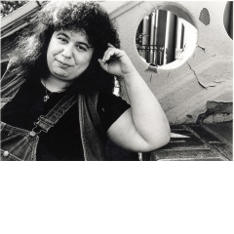media
-
Discussing marriage on the Public Intellectual podcast
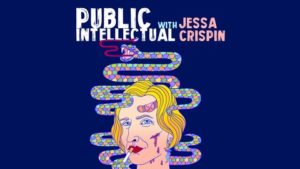
I was interviewed on marriage by Jessa Crispin for her podcast The Public Intellectual. You can listen to the interview here.
-
Driverless cars on BBC R4’s PM

I appeared on BBC Radio 4’s PM programme on Wednesday 6th February 2019, discussing the ethics of driverless cars. You can listen to this programme (for a while, at least) here. I appear about 48 minutes in.
The segment inspired a satirical news piece “Ethically programmed self-driving cars refuse to start engines as it contributes to Global Warming” by Simon Paul Miller, which you can read here.
-
Blending in and standing out: comfort and visibility in beauty practices
 “My thought is this: a significant aspect of beauty practices is comfort and visibility. Comfort relates to discipline: discipline makes some actions and inactions seem comfortable and others effortful. Visibility relates to surveillance: some beauty practices make us seem visible or hyper-visible, others make us feel invisible. Sometimes beauty practices aim at making the practitioner visible: she wants her appearance to be noticeable. But beauty practices can also aim at invisibility: at making a person blend in rather than stand out. Both make up and its absence can have this effect, depending on the person and context involved.”
“My thought is this: a significant aspect of beauty practices is comfort and visibility. Comfort relates to discipline: discipline makes some actions and inactions seem comfortable and others effortful. Visibility relates to surveillance: some beauty practices make us seem visible or hyper-visible, others make us feel invisible. Sometimes beauty practices aim at making the practitioner visible: she wants her appearance to be noticeable. But beauty practices can also aim at invisibility: at making a person blend in rather than stand out. Both make up and its absence can have this effect, depending on the person and context involved.”This short piece is published on the Beauty Demands blog. You can read it here.
-
Against Marriage at BBC Cambridgeshire
I was interviewed live on BBC Radio Cambridgeshire’s Lunchtime Live Show. Jeremy Sallis talked to me about Against Marriage and my lecture for the Cambridge Festival of Ideas.
-
Against Marriage at Festival of Ideas
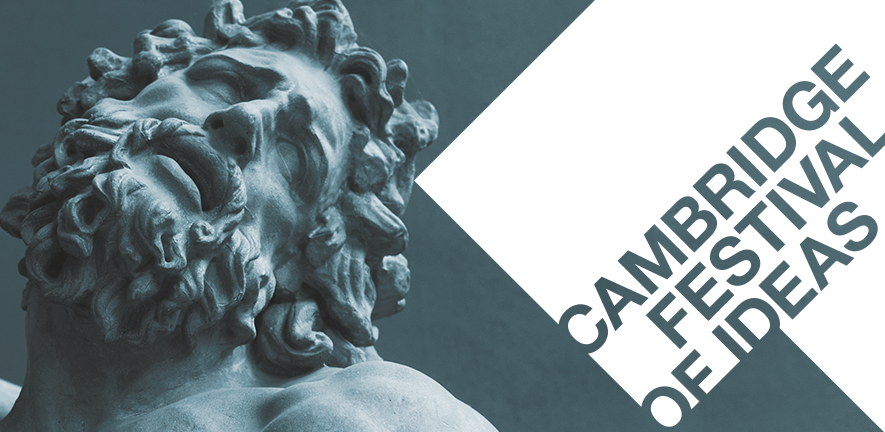 I talked about Against Marriage at the Cambridge Festival of Ideas on Monday 15th October 2018, in the Frankopan Hall of Jesus College, Cambridge.
I talked about Against Marriage at the Cambridge Festival of Ideas on Monday 15th October 2018, in the Frankopan Hall of Jesus College, Cambridge.Many states have recently expanded their definition of marriage to allow marriage between same-sex couples: a welcome move towards equality, but does this go far enough? Philosopher Clare Chambers argues for a more extreme position: that the state should not recognise marriage at all. State recognition of marriage, she will argue, is a violation of both equality and liberty – no matter how marriage is redefined.
Tickets were sold out and so the talk was live-streamed. You can watch it on youtube here:
-
How to Disagree on BBC Radio 4
Timandra Harkness interviewed me for the BBC Radio 4 series “How to Disagree: A Beginner’s Guide to Having Better Arguments”, episode 4. The topic of the discussion is moral disagreement, with particular reference to the topic of abortion.
The episode was broadcast on 16 August 2018 and you can listen to it here.
-
Sweet Reason on BBC Radio 4
 You can hear me debate offence with Jordan Peterson, Shaista Aziz, and Evan Davis on BBC Radio 4’s “Sweet Reason”. Are people offended too easily? Are there some topics that should not be debated?The broadcast is on Thursday 2nd August 2018 at 9am and 9.30pm, and you can hear the programme online here.
You can hear me debate offence with Jordan Peterson, Shaista Aziz, and Evan Davis on BBC Radio 4’s “Sweet Reason”. Are people offended too easily? Are there some topics that should not be debated?The broadcast is on Thursday 2nd August 2018 at 9am and 9.30pm, and you can hear the programme online here.
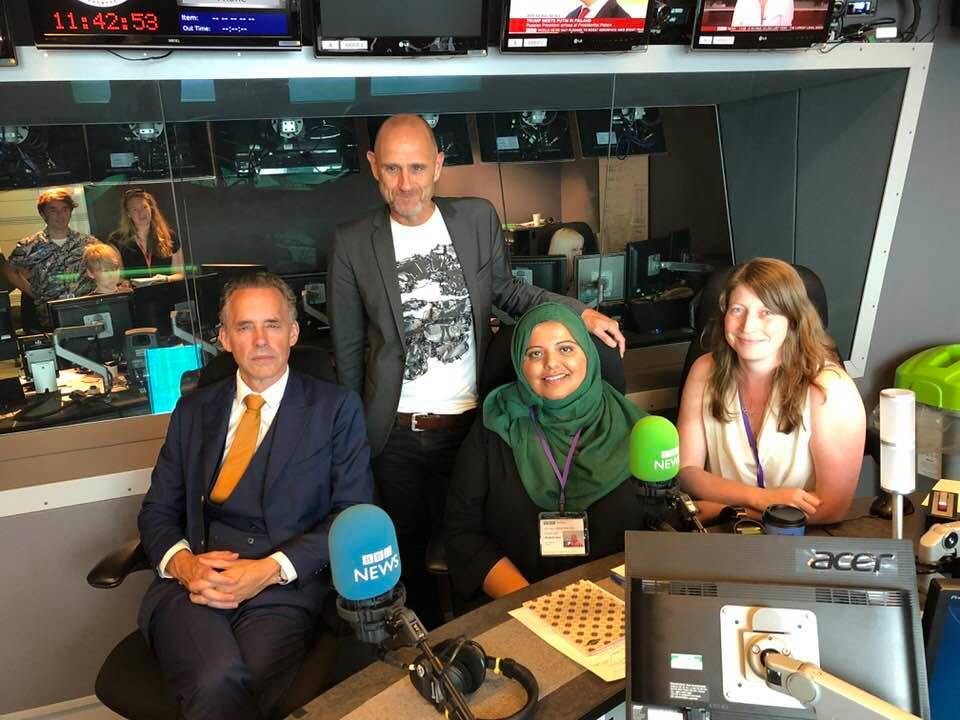
-
OUP Philosophy Festival reading list
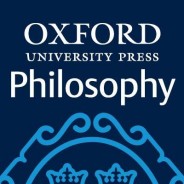 Two of my articles feature in the OUP Philosophy Festival 2017 reading list, making them available for free download.
Two of my articles feature in the OUP Philosophy Festival 2017 reading list, making them available for free download.You can find and read “The Marriage-Free State” and “Ideology and Normativity”, as well as many other excellent articles by other philosophers, here.
-
OUP Women in Philosophy reading list

Against Marriage features in the Oxford University Press Women in Philosophy reading list.
“This March, in recognition of Women’s History Month, the OUP Philosophy team will be celebrating Women in Philosophy. The philosophy discipline has long been perceived as male-dominated, so we want to recognize some of the incredible female philosophers from the past including Simone de Beauvoir, Mary Wollstonecraft, and Hannah Arendt, plus female philosophers doing great things in 2018 like Martha Nussbaum, Clare Chambers, and Kate Manne.”
You can see the whole reading list here.
-
Routledge Companion to Feminist Philosophy reviewed in Hypatia Reviews Online
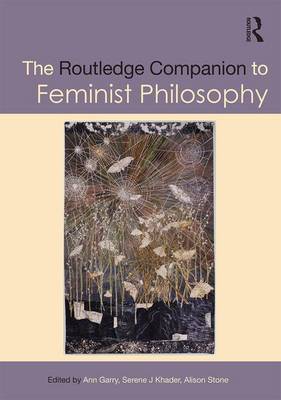 I have a chapter on feminism and liberalism in The Routledge Companion to Feminist Philosophy, edited by Ann Garry, Serene J. Khader, and Alison Stone (Routledge, 2017). The volume has been reviewed by Amy Marvin in Hypatia Reviews Online. You can read the full review here.
I have a chapter on feminism and liberalism in The Routledge Companion to Feminist Philosophy, edited by Ann Garry, Serene J. Khader, and Alison Stone (Routledge, 2017). The volume has been reviewed by Amy Marvin in Hypatia Reviews Online. You can read the full review here.“The Routledge Companion to Feminist Philosophy presents an exciting, comprehensive, and original pluralist presentation of feminist philosophy that is a much-needed update to existing feminist philosophy companions. Students, scholars, independent researchers, and departments interested in feminism and philosophy would do well to make sure they have access to this volume, and it should be a relevant resource for years to come.”
-
Quoted on marriage in The Guardian
Rose Hackman quotes me in a long-form piece on marriage in The Guardian. You can read the whole article here.
” “Married men gained rights over women’s bodies, property and children,” confirms Clare Chambers, a lecturer in philosophy at the University of Cambridge who wrote a book arguing for an end to state-recognized marriage. “Traditionally [marriage] has maintained legal gender inequality, and it has done so to the benefit of men.”
“Chambers concedes that many formal inequalities tied to marriage have been denounced and revoked. Marital rape was outlawed in the UK in 1991 and in the US in 1993 – hard to believe there was ever an exemption – and same-sex marriage was legalized in 2014 and 2015 respectively.”
-
The American Conservative on Against Marriage
 They don’t like it. See here.
They don’t like it. See here.Note that the article does not always read the argument of the book accurately.
- Against Marriage, all posts on feminism, all posts on liberalism, all posts on marriage, media, read
Fabian Society on Against Marriage
 Andrew Harrop, General Secretary of the Fabian Society, reviewed Against Marriage in Fabian Review, May 2018. You can read the full review here.
Andrew Harrop, General Secretary of the Fabian Society, reviewed Against Marriage in Fabian Review, May 2018. You can read the full review here.“Marriage makes me uncomfortable, whether the reason is political, historical, cultural or aesthetic. No matter how many married couples I see living modern equal relationships, for me, the whole concept is tainted by its patriarchal past. But I say ‘for me’ with good reason, as I have dozens of friends and comrades who disagree. This is a fault-line issue that divides socialists and feminists amongst themselves. In Against Marriage, Clare Chambers makes the case for why egalitarians and liberals should reject marriage. It is political philosophy at its most practical and readable.”
-
Against Marriage on JHIB blog
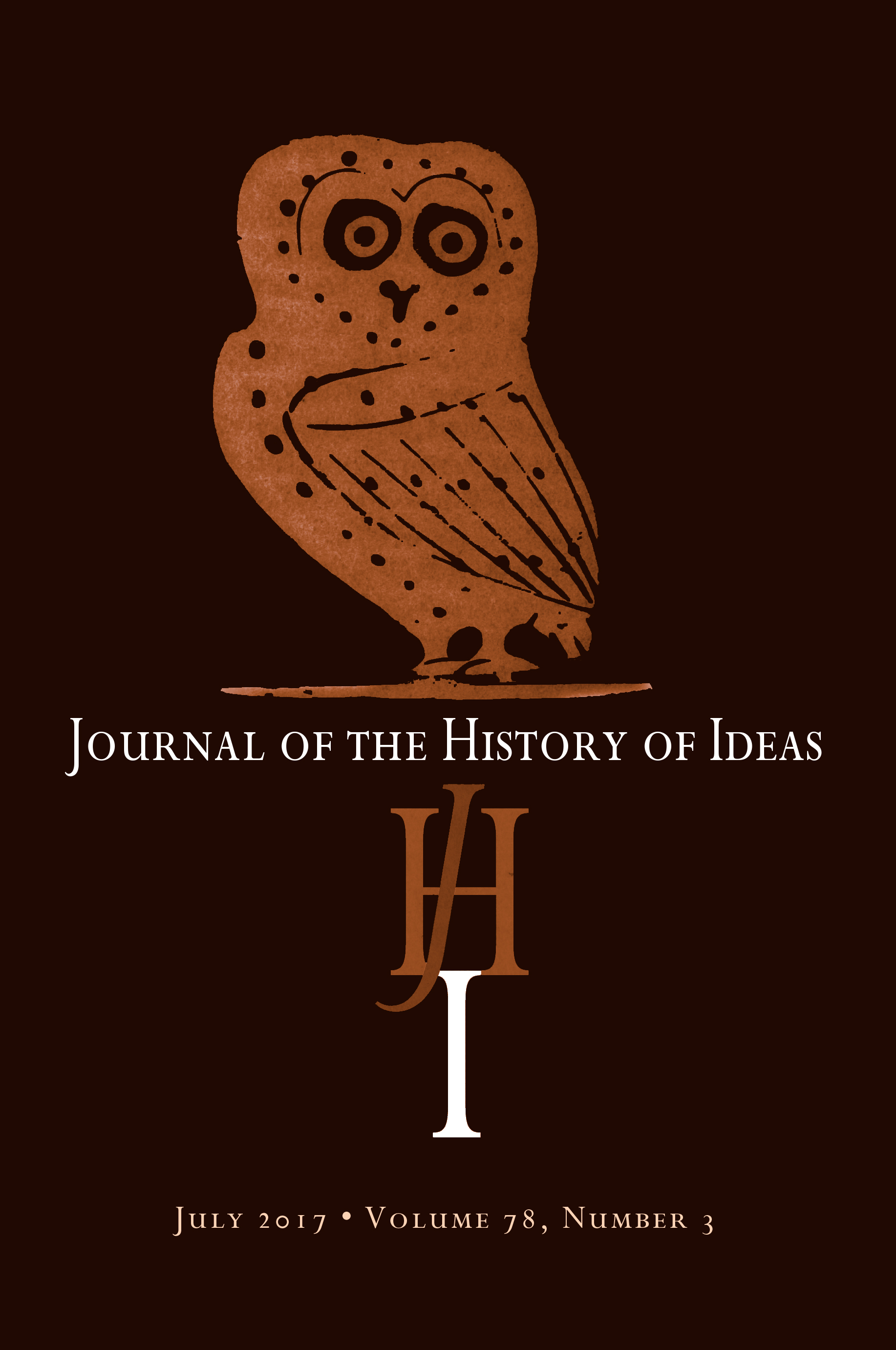 My Aeon article “Against Marriage” was recommended by the Journal for the History of Ideas Blog here.
My Aeon article “Against Marriage” was recommended by the Journal for the History of Ideas Blog here. -
Times of India on Against Marriage
 The Times of India featured my Aeon article “Against Marriage” on 22 April 2018. You can read the coverage here.
The Times of India featured my Aeon article “Against Marriage” on 22 April 2018. You can read the coverage here. -
Against Marriage at Aeon
 I have a 3,300 word essay on “Against Marriage” at Aeon magazine. You can read the article here.
I have a 3,300 word essay on “Against Marriage” at Aeon magazine. You can read the article here. -
Edinburgh Just World Institute blog
The University of Edinburgh Just World Institute blogged about my paper “Reasonable disagreement and the neutralist dilemma: Abortion and circumcision in Matthew Kramer’s Liberalism with Excellence”. You can read the blog here.
-
Ask Me Anything (AMA) on Reddit
 On 16 April I’ll be doing an AMA – Ask Me Anything! – for Reddit Philosophy. You can join in the fun at 12noon EST / 5pm GMT. Read the discussion here.
On 16 April I’ll be doing an AMA – Ask Me Anything! – for Reddit Philosophy. You can join in the fun at 12noon EST / 5pm GMT. Read the discussion here. -
Gli Stati Generali on the “Me Too” movement
 I was interviewed by Valentina Saini for her piece “È L’ALBA DI UN’INTERNAZIONALE FEMMINISTA?” on the Italian news site Gli Stati Generali. You can read the piece, in Italian, here.
I was interviewed by Valentina Saini for her piece “È L’ALBA DI UN’INTERNAZIONALE FEMMINISTA?” on the Italian news site Gli Stati Generali. You can read the piece, in Italian, here.For those who don’t speak Italian I don’t have a translation of the full article, but here are the answers I gave to Valentina Saini’s questions.
VS: In many countries and regions of the world, sexual harassment in the form of a “pat” on a woman’s “butt”, for example, is seen as something innocent and harmless, nothing one should be especially offended by – many women think so too. Why is that? Is women’s body still something that does not belong exclusively to them – culturally speaking?
A (CC): Women and girls are taught from an early age that one of their most important roles is to be attractive, pleasing, submissive and helpful to others. This education comes from many sources: gendered differences in early upbringing, acceptable social roles for men and women, media portrayals of women that focus on their looks, role-models and stereotypes. It is not surprising in this context of gender inequality that some women internalise the role given to them, and think of their bodies as primarily existing to be appraised and used by others. That doesn’t make it acceptable.
Q (VS): The Me Too hashtag arose in the US and rapidly spread in many other parts of the world, meaning that sexual abuse and sexual harassment are a global phenomenon. Is it possible that even in so-called developed countries, sexual harassment in the workplace is subtly interpreted as “the price” women may have to pay to enter a once male-only institution, that is, paid work?A (CC): Sexual abuse and sexual harassment certainly are global. Women know this and have known it for a very long time. Women do not enter the workplace on equal grounds to men. They are multiply disadvantaged by many forms of sexism: sexual harassment, the gender pay gap, the incompatibility of work and family life, stereotyping and discriminatory behaviour. Gender inequality of all forms needs to be dismantled, and the Me Too movement is one important part of the global movement of women and feminists against sexism. -
The Reading Lists
Want to know what books I like? You can read an interview with me by Phil Treagus of The Reading Lists blog here. His questions were fascinating to think about and very hard to answer!
-
Against Marriage on BMJ blog
 Richard Smith writes in the British Medical Journal (BMJ) blog that he is persuaded by the arguments of Against Marriage. You can read the full article here.
Richard Smith writes in the British Medical Journal (BMJ) blog that he is persuaded by the arguments of Against Marriage. You can read the full article here.“Chambers is against marriage on the grounds of equality and liberty. Women are not equal with men within marriage, and the state by attaching a bundle of rights and duties to marriage creates a hierarchy of relationships with marriage at the top, making unmarried couples and single people inferior. Much of the population, including my wife and I, thinks that “common law wives” have similar rights to married women, but in fact they have none. By bundling rights and duties together, marriage (and civil partnerships) restrict autonomy; if they weren’t bundled people might choose different combinations of rights and duties.
“There is a need, Chambers accepted, for the law to regulate relationships, particularly to protect the vulnerable, but neither marriage nor civil partnership, which all the speakers criticised as being “one size fits all,” need to be that mechanism. She pointed out that parenthood might be a better basis for regulation than marriage, not least because parent-child relationships are more durable than couple relationships. Tatchell advocates a model whereby people would select “any significant other” (perhaps a best friend, sibling, or lover) and then choose among a menu of rights and duties. Such an arrangement would lead to greater equality and autonomy. All three speakers agreed that something along those lines would be better than either marriage or civil partnerships.
“And at dinner afterwards, my wife and I, despite being married for 40 years, agreed.”
-
The Politics of Marriage at LSE Forum
 Marriage is an odd mix of sex, religion, and politics. Our speakers ask what marriage is and whether there is there any distinctive moral value in it. Should the state promote it? Is it possible to have an ‘equal’ marriage, or is marriage fundamentally an oppressive institution? Should marriage be rejected in favour of civil partnerships, or something else, or perhaps nothing else?
Marriage is an odd mix of sex, religion, and politics. Our speakers ask what marriage is and whether there is there any distinctive moral value in it. Should the state promote it? Is it possible to have an ‘equal’ marriage, or is marriage fundamentally an oppressive institution? Should marriage be rejected in favour of civil partnerships, or something else, or perhaps nothing else?You can watch a video of the event and listen to the podcast here.
Speakers
Clare Chambers
Senior Lecturer in Philosophy, University of CambridgeSir Paul Coleridge
Former high court judge and Chairman, The Marriage FoundationPeter Tatchell
Activist and Director of the Peter Tatchell FoundationChair
Fellow, The Forum
Senior Lecturer in Philosophy, King’s College London - all posts on culture and religion, all posts on feminism, all posts on the body and beauty, media, watch
Dress codes at work for the BBC
-
“Time to abandon marriage?” in the TLS
 The Times Literary Supplement (TLS) published my piece “Time to abandon marriage?” as part of their Ethical Angles Series (2017). Read it here.
The Times Literary Supplement (TLS) published my piece “Time to abandon marriage?” as part of their Ethical Angles Series (2017). Read it here. -
Regulating Religious Marriage at CEU
-
Philosophy 24/7
 You can listen to an interview with me on “The State and Marriage” at Philosophy 24/7 here.
You can listen to an interview with me on “The State and Marriage” at Philosophy 24/7 here. -
Broadly at Vice.Com
 I provided comment and analysis for an article on the sharing economy by Sirin Kale at Broadly, titled “ ‘There was a Stranger in My Own House’: Is the Sharing Economy Safe for Women?”. You can read the article here.
I provided comment and analysis for an article on the sharing economy by Sirin Kale at Broadly, titled “ ‘There was a Stranger in My Own House’: Is the Sharing Economy Safe for Women?”. You can read the article here.Women and minorities appear more likely to experience violence and discrimination on platforms like Uber and Airbnb. How did the gig economy go so wrong?
-
Philosophers on same-sex marriage at Daily Nous
 I am one of a panel of philosophers discussing the Supreme Court’s ruling on same-sex marriage at the Daily Nous blog. You can read it here.
I am one of a panel of philosophers discussing the Supreme Court’s ruling on same-sex marriage at the Daily Nous blog. You can read it here.On Friday, June 26th, the Supreme Court of the United States announced its ruling in Obergefell v. Hodges, holding that the Fourteenth Amendment of the United States Constitution guarantees the recognition and provision of same-sex marriage. It requires each of the 50 states in the US to issue marriage licenses to same-sex couples seeking them, and to recognize legitimate same-sex marriages performed in other jurisdictions. … The decision is a landmark in the development of the rights and liberties of gay and lesbian people in the US, and is not without its controversy, of course. Many questions have arisen about the reasoning of the majority and that of the dissenting justices, as well as the significance of the decision. To get clearer on some of these issues, [Daily Nous] asked several philosophers to contribute some brief remarks on the ruling. They are: Elizabeth Brake (Arizona State), Cheshire Calhoun (Arizona State), Clare Chambers (Cambridge), John Corvino (Wayne State), Brook Sadler (South Florida), Edward Stein(Cardozo), and Kevin Vallier (Bowling Green).
-
Not the Fun Kind – Conference on Andrea Dworkin
-
BBC Radio 4 Broadcasting House
 I took part in a “remunerations panel”, discussing the philosophy behind how much people should be paid. The item was broadcast live on 7th June 2015. You can listen here – the item starts 14 minutes in.
I took part in a “remunerations panel”, discussing the philosophy behind how much people should be paid. The item was broadcast live on 7th June 2015. You can listen here – the item starts 14 minutes in.



 Can your employer demand that you go to work naked? In this short
Can your employer demand that you go to work naked? In this short 

